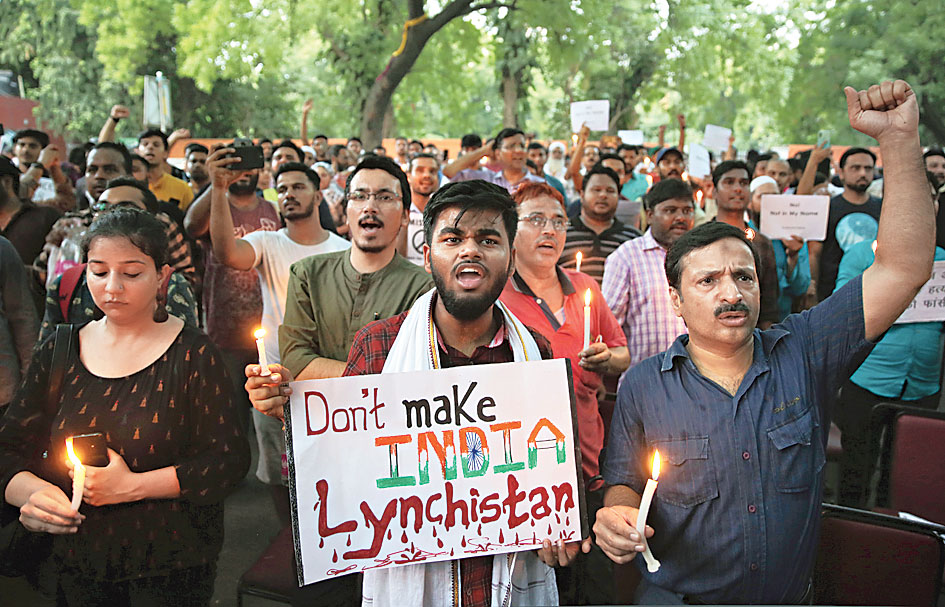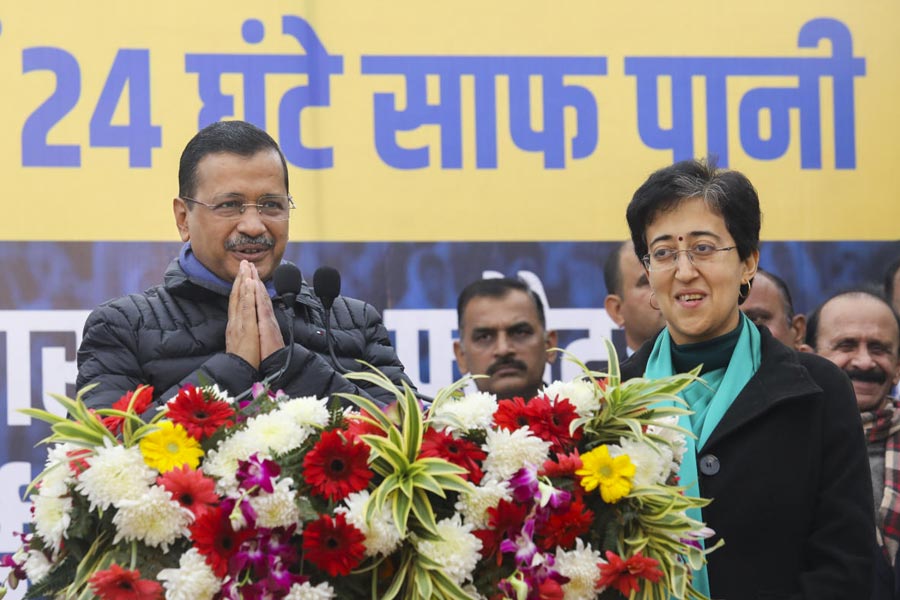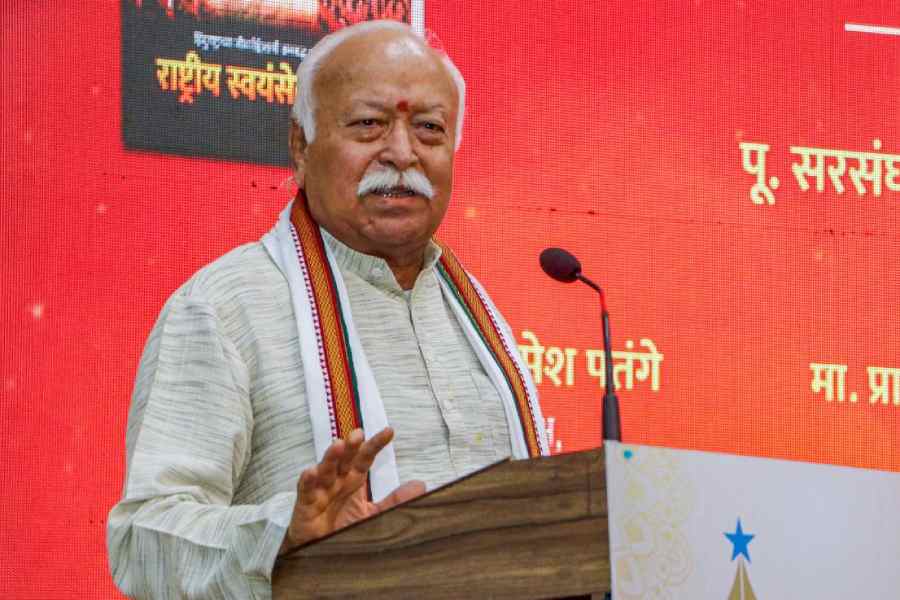A Wardha-based central university has expelled five Dalit and OBC students for writing to the Prime Minister against the lynchings and the Kashmir clampdown, offering the argument that they had violated the model code of conduct in force in poll-bound Maharashtra.
As unexpected as the grounds for Wednesday’s action were its speed and manner: the three Dalit and two OBC students were expelled within four hours of their protest programme, without any inquiry or opportunity to defend themselves.
In its haste to act, the Mahatma Gandhi Antarrashtriya Hindi Vishwavidyalaya seems not to even have consulted its records — it also “expelled” a former student who had participated in the protest.
Calls and text messages to vice-chancellor Rajneesh Shukla evoked no response.
The Election Commission’s model code of conduct applies to political parties and candidates, not university students. Typical violations include making divisive speeches, electioneering at a place of worship, infringing the campaign timings, or (for people in government) announcing schemes or welfare measures.
What the students did was write postcards to Modi condemning the trend of lynchings, the decisions around the removal of Jammu and Kashmir’s special status and the government’s policy of privatisation — something that would normally not constitute a code violation even for a candidate.
A university is anyway not the competent authority to decide poll code violations: that power resides with the district electoral officer who was not consulted.
Several academics have criticised the university action, and the hurry in which it was taken, seeing in it the latest instance of the muzzling of dissent that is increasingly characterising India academia.
Nearly 100 students had held the protest near the Gandhi Hills on the campus from about 5pm to 8pm on Wednesday despite the university authorities denying permission for the event.
“We went ahead because what’s happening in the country is worrying. As university students, we wanted to raise our voice,” said PhD student Rajnish Ambedkar, one of the five expelled.
While many of the participants wrote postcards to Modi, only five have been expelled — apparently because they and the ex-student had argued with registrar-in-charge Manoj Kumar when he arrived and said the protest violated the model code of conduct.
“Had we been from the upper castes, the authorities would not have acted without an inquiry or giving us a chance to defend ourselves. They don’t want students from socially backward sections to study and progress,” Ambedkar said.
A little after 11pm, Kumar issued a common expulsion notice naming the six.
Rajesh Yadav, an OBC youth who had earned his MBA from the university last year, said he had come to the campus to meet a few friends and decided to join in the protest.
“We will launch a protest from Monday unless the expulsions are revoked. We don’t belong to any political party. We couldn’t have violated the model code of conduct,” Yadav said.
Nandita Narain, a teacher at St Stephen’s College, Delhi, said the Wardha-based university’s move was of a piece with the trend of smothering any dissent or questioning.
“A university teaches students to question things. It’s questioning that leads to new knowledge and innovation. The tendency to quell any dissent is a danger to democracy,” Narain added.
Abha Dev Habib, a former member of Delhi University’s executive council, said: “The least one expects from a university is that it would set up an inquiry and give the students ample opportunity to defend themselves. Even the minimum protocol was not followed.”
She said the university had merely tried to please its “political bosses” and added that the expulsion, coming within four hours of the end of the protest, had likely set a speed record in Indian academia.
Inder Mohan Kapahy, a former University Grants Commission member who had been appointed by the Modi government, said the university’s decision was “certainly extreme”.
“The proper procedure should have been followed,” he said. He, however, accused the Leftist political parties of fomenting students’ agitations on campuses without justification.
“There is no freedom in places where Left parties are ruling. They have no moral right to invoke the freedom of speech. Political parties are exploiting students for their own gain; this too is condemnable,” Kapahy said.
On Friday, the Jamia Millia Islamia university in Delhi had served notices on five of its students, asking them to explain by Monday why they had protested against Israeli delegates being invited to a campus conference on health on October 5.
Summedha Poddar, one of the five students, said: “We were protesting because Israel has occupied parts of Palestine and is accused of human rights violations.”
Some of the agitating students had argued with staff from the proctor’s office who had asked them to stop the protest, and scuffled with university guards.
“A few students have been protesting regularly. They had no permission, and they misbehaved. We had to issue a notice,” proctor Waseem Khan said.











